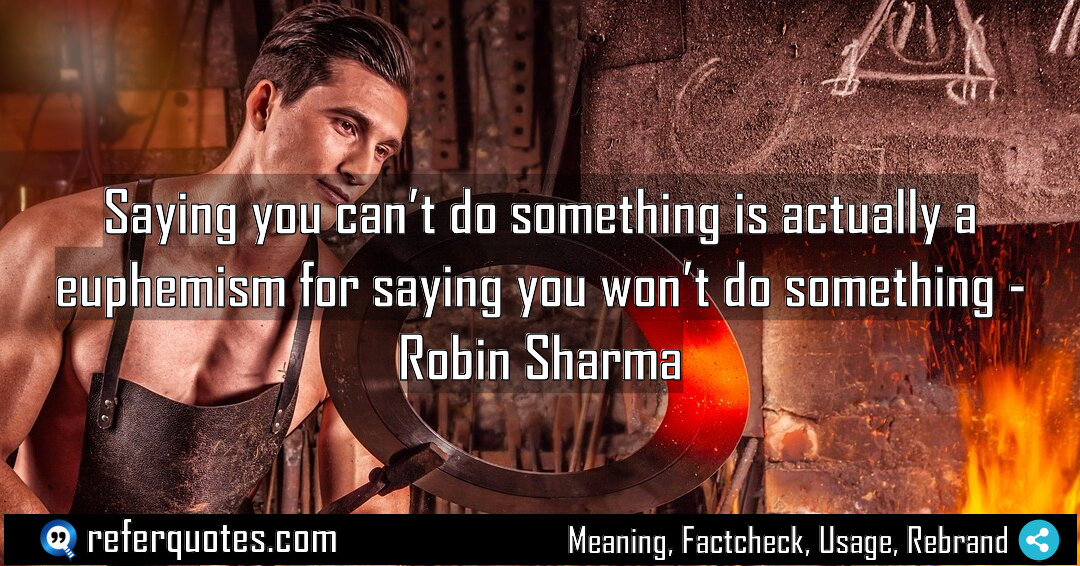You know, I’ve seen this Robin Sharma idea pop up everywhere. “Saying you can’t do something…” It’s a powerful reframe that shifts failure from a fixed state to a choice. Once you get this, it changes how you approach every single obstacle.
Share Image Quote:Table of Contents
Meaning
At its core, this quote argues that “I can’t” is almost never about ability. It’s a socially acceptable excuse for a lack of will, courage, or commitment. It’s a story we tell ourselves to avoid the real work.
Explanation
Let me break this down. I’ve worked with so many clients who get stuck on this. When someone says “I can’t start a business,” what they’re often really saying is “I won’t take the financial risk.” Or “I can’t learn that new software” translates to “I won’t invest the time and feel the temporary frustration of being a beginner.” It’s a subtle but massive psychological shift. You’re moving from a fixed mindset, where your capabilities are set in stone, to a growth mindset, where your outcomes are a direct result of your actions and choices. It forces you to own your decisions.
Quote Summary
| Context | Attributes |
|---|---|
| Original Language | English (3668) |
| Category | Personal Development (697) |
| Topics | choice (55), discipline (252), responsibility (55) |
| Literary Style | direct (414) |
| Emotion / Mood | challenging (24) |
| Overall Quote Score | 79 (243) |
Origin & Factcheck
This is correctly attributed to Robin Sharma in his 1999 book, The Monk Who Sold His Ferrari. It came out of Canada and really captured the early 2000s personal development zeitgeist. I sometimes see it misattributed to Tony Robbins or other motivational speakers, but it’s definitively from Sharma’s work.
Attribution Summary
| Context | Attributes |
|---|---|
| Author | Robin Sharma (51) |
| Source Type | Book (4032) |
| Source/Book Name | The Monk Who Sold His Ferrari (51) |
| Origin Timeperiod | Contemporary (1615) |
| Original Language | English (3668) |
| Authenticity | Verified (4032) |
Author Bio
Robin Sharma built a second career from the courtroom to the bookshelf, inspiring millions with practical ideas on leadership and personal mastery. After leaving law, he self-published The Monk Who Sold His Ferrari, which became a global sensation and launched a prolific writing and speaking journey. The Robin Sharma book list features titles like Who Will Cry When You Die?, The Leader Who Had No Title, The 5AM Club, and The Everyday Hero Manifesto. Today he mentors top performers and organizations, sharing tools for deep work, discipline, and meaningful impact.
| Official Website | Facebook | X| Instagram | YouTube
Where is this quotation located?
| Quotation | Saying you can’t do something is actually a euphemism for saying you won’t do something |
| Book Details | Publication Year: 1997; ISBN: 9780062515674; Latest Edition: HarperSanFrancisco Edition (2011); Number of Pages: 198 |
| Where is it? | Chapter: The Discipline of Action, Approximate page from 2011 edition: 91 |
